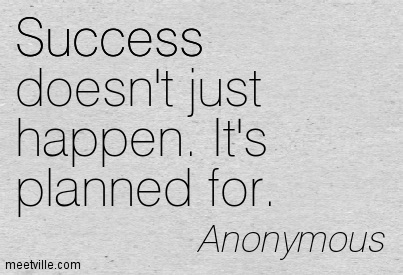If your financial stress level is feeling a little high and saving seems impossible, check out these tips to start creeping a little closer to financial success.
- Start Small
Clipping coupons or spending a ton of time to knock $5 off a grocery bill might not seem worth it, but if you have $0 saved for an emergency, saving $5 at the grocery store each week gives you $20 a month.
$20 a month puts $100 in your emergency savings after 5 months.
$100 is a decent initial buffer for emergencies. It’s a doctor visit co-pay and some medicine. It’s a bus or train ticket for a family emergency or job interview.
Calling your utility companies and negotiating discounts might not be much alone, but there are endless piles of lists on the internet of things you can do to save a few dollars. When you’re starting out building up your savings, those little things matter.
- Open separate accounts for your savings goals.
My emergency savings are pretty hard to get to. They’re stashed in an entirely separate bank than everything else I do and it takes 3 days to transfer the money out.
This is great because it’s mostly out of sight and out of mind.
- Set goals.
It’s easier to succeed with a clear plan.
For my emergency savings, I set an initial goal of $500. From there, I increased it to $1,000. I noticed that at $1,000, I could weather a lot of inconveniences – flat tires, dental emergencies, a slow month of freelance work.
I thought about it some more and felt that $10,000 was the amount I felt pretty safe with in the bank. So I made a plan and built the account up to that number – over like four years.
If you told the me that was scrambling to save $500 that in just a few years there would be $10,000 sitting in there, I would have laughed at you, but because I made plans and stuck with them, even if they took a little longer than I initially thought they would, it worked out.
Emergency savings aside, I also have a few saving accounts for expenses I know I should save up for. The two big ones are a down payment on a house and a new car. There are a few smaller accounts for my annual car insurance payment, vacations, friends weddings, etc.
With those accounts, I look at how much I want to put into them for the year and set that as my goal number. Some have very set goal numbers, like knowing each June my car insurance is going to cost around $1,200. Others have less set numbers, like my car savings goal is roughly based on the hope that my current car lasts about seven more years.
- Make a plan.
Once the goals are set, I break down the amounts I need to save each month to hit those goals.
Then I rank how important each goal is and if there’s a certain time during the year that the goal needs to be met (June insurance payments, September wedding, etc.).
Depending on how my year is going financially, I use one of two methods to hit my savings goals. If I’m working a steady job and all my goals are pretty much equally important, sometimes I contribute the amount I set for each month. When extra money comes my way, I’ll usually throw it at one of those goals so I can reach it sooner.
When I’m freelancing, that list of how important each one is becomes more important and I’m more likely to attack a goal until it’s fully funded and then move onto the next one. Psychologically, I like this approach the best too. I feel more motivated to keep saving when I can cross goals off the list.
- Be willing to sacrifice a little now to stay ahead of the game later.
If doing an unpleasant no-spend week will save you enough money to get a month ahead on your utilities, do it. And then stay a month ahead.
If cleaning out your closets and basement will let you get a month ahead on your rent, do it.
If spending your evenings reading books about saving and living frugally helps you develop better habits, do it.
If picking up an exhausting side hustle for six months funds your emergency fund or gets you out of debt quicker, do it.
The biggest tip about personal finance is just to do the things. No one can make you do them. Not every tip will be successful or work for you, but if you keep at it, you’ll find the right combination for success!






This is an excellent post! I like the way you broke large goals down into tiny, very doable steps.
Life must be planned. I worked for years in mortgage collection and saw too many children lose their homes when parents embraced entitlement to the investment myth over opportunity and discipline; then, unfortunately, was able to save only a few hundred from themselves. My wife managed my white collar salary like an ever changing labyrinth and, in coming to the end, she did not vary from this strategy: Necessities only to complete Kroger 50% off or, a fraction of 10 for ten or, when available, senior green label discount (which has been discontinued) for specific weekly menus; Red Robin (for the endless root beer float) and Wal-Mart for non-meat items, once a month; plus Sam’s meat runs every other month. This permitted her to work only as she wanted, with complete discretion, for the last fifteen years of her life. Also the happiest fifteen years of my life, may she rest in peace.
James recently posted…Should You Make a Claim? Deciding Whether or Not to File a Claim After an Accident